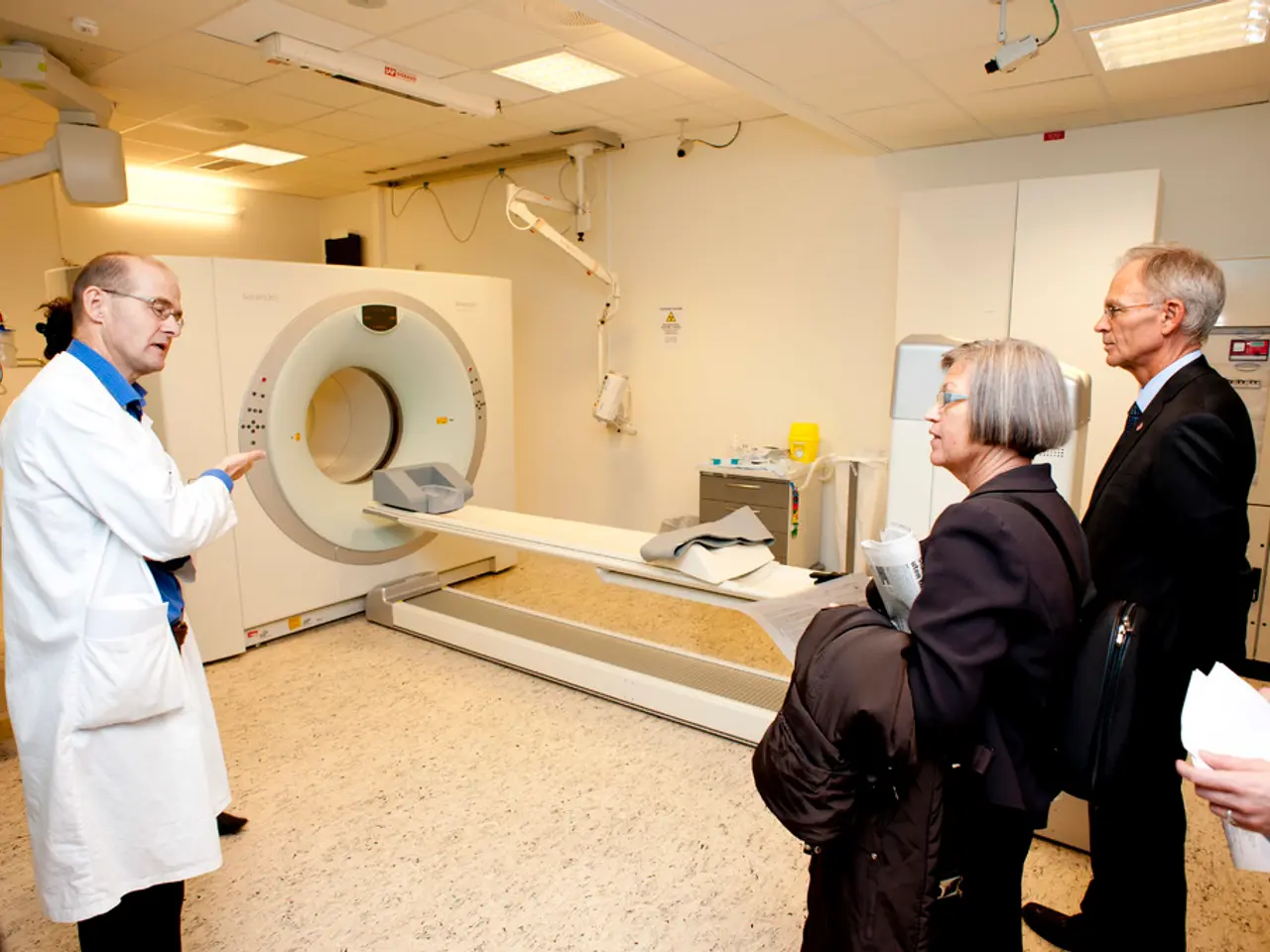Study Comparing Medical Cases and Controls: Benefits and Drawbacks
Case-control studies are a valuable tool in medical research, often employed to investigate the potential causes of diseases, particularly in the context of disease outbreaks or rare conditions. These studies involve enrolling a specific group of people, both those with the disease (cases) and those without (controls), and monitoring their health over time to test for specific causes.
To conduct a case-control study, scientists first formulate a hypothesis about possible risk factors. They then compare the exposure of cases to the suspected cause with that of the control group. This comparison helps determine if there is a higher incidence of the risk factor among cases, suggesting that the factor may be a likely cause of the disease.
One of the key advantages of case-control studies is their cost-effectiveness and speed. They are quick and easy to carry out as they use existing data and do not require large numbers of participants. This makes them particularly useful for exploring multiple risk factors and for examining rare diseases or diseases with long latency periods.
However, case-control studies also have their limitations. One significant challenge is that they cannot definitively prove a link represents a definite cause. Since exposures are assessed retrospectively, these studies can only detect associations but cannot determine cause-effect relationships.
Another limitation is the susceptibility to recall bias. Since cases and controls are asked to recall their past exposure to risk factors, there is a risk that memories may not be accurate or complete, affecting the validity of the study. To mitigate this, researchers can use reliable records of risk factors or interviews conducted by trained professionals.
Selection bias is another potential issue in case-control studies. Choosing appropriate control groups matched by key characteristics is crucial but challenging. Poor matching can distort findings and lead to inconclusive results.
In addition, case-control studies are less effective for studying rare exposures. Since the design focuses first on disease status, it may be difficult to find enough cases with the exposure of interest to draw meaningful conclusions.
Despite these limitations, case-control studies remain a practical and efficient method for investigating health and illness factors in populations. They provide valuable insights into potential causes of diseases and contribute to our understanding of public health issues. However, it is essential to approach the results of case-control studies with caution, recognising their limitations and interpreting the findings in the context of other evidence.
Healthsystems and scientists utilize case-control studies, valuable tools for medical research, to explore the potential causes of various medical-conditions and diseases, including chronic-kidney-disease, cancer, respiratory-conditions, digestive-health issues, eye-health problems, and neurological-disorders. In these studies, researchers develop hypotheses about possible risk factors and compare these factors' exposure among disease cases with that of a control group.
Scientists can leverage several benefits from conducting case-control studies. The methodology is both cost-effective and speedy, requiring existing data and minimal participant numbers, making it excellent for examining multiple risk factors or studying rare diseases with long latency periods.
However, case-control studies come with limitations as well. They cannot definitively prove a link between the risk factor and the disease, only detecting associations instead. Additionally, recall bias may arise from asking cases and controls to recall their past exposures, potentially causing inaccurate or incomplete information.
To mitigate this, scientists can employ reliable records of risk factors or interviews led by trained professionals. Another potential issue is selection bias, where choosing appropriate control groups matched by essential characteristics can be challenging yet critical to obtaining correct results. Furthermore, case-control studies are less suitable for studying rare exposures, as it may be difficult to find enough cases with the exposure of interest to draw substantial conclusions.
Despite these obstacles, ongoing education-and-self-development among scientists and healthorganizations helps them understand the nuances of case-control studies and properly interpret their findings. These insights contribute to public health improvements and the understanding of various chronic-diseases.
In terms of career-development, learning about these methodologies, including case-control studies, therapies-and-treatments, and other health-and-wellness advancements, is crucial for anyone seeking a career in this field. Delving into online-education resources and job-search opportunities helps one remain current in their knowledge and skills-training.
Moreover, incorporating personal-growth techniques such as mindfulness, goal-setting, lifelong-learning, productivity, and self-development can help researchers maintain a holistic outlook and better navigate today's complex scientific landscape. By critically evaluating studies and data, researchers can make informed decisions, set realistic goals, and foster innovative therapies and treatments for numerous health issues, paving the way for a healthier future.
Autoimmune-disorders such as psoriasis, skin-conditions, and breast-cancer are some examples of diseases that can benefit from continued research using case-control studies. Collaborative efforts among scientists, healthsystems, and healthorganizations promise to yield valuable insights and innovative therapies, promoting advancements in cardiovascular-health, cancer treatments, and improving the overall quality of life for countless individuals worldwide.






